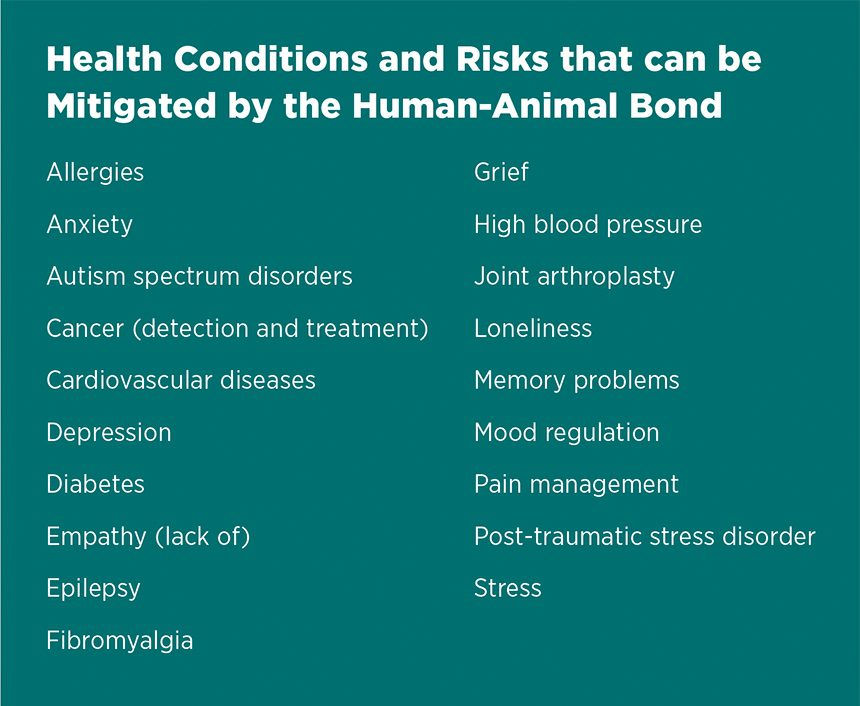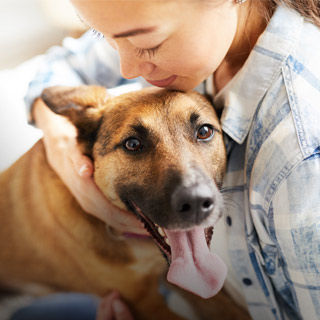The Reality of Supporting People Facing Homelessness with Pets: A Package Deal
- Canadian Courage Project
- Aug 11, 2022
- 7 min read
Written by: Amelia King
Edited by: Anya Bhopa & Tvisha Shah
Dear CCP readers,
If you are returning for more information regarding the current state of homelessness in Canada and the Greater Toronto and Hamilton Area (GTHA) and the particular challenges faced by youth experiencing homelessness and those with animal companions, welcome back! If you are new to our blog, welcome and thank you for your interest in learning more about issues regarding the homelessness crisis in Canada and beyond - you are one step closer to becoming a changemaker in your community, and you are in great company.
Today's post will provide an overview of the integral role of animal companionship in the lives of people facing homelessness, namely youth facing homelessness, and systemic and social barriers present for many attempting to access resources and services designed to aid people facing homelessness and/or mental health troubles.
The Benefits of Animal Companionship
If you are fortunate enough to often find yourself in the company of a loving animal in the comfort of your own home, it should come as no surprise that owning a pet is good for both your mental and physical well-being. To reap these benefits in the safety and security of an indoor space you call home is a blessing often taken for granted. With 1 in 5 Canadians currently living with a mental illness, animal companionship has perhaps never been more of a cornerstone in building a healthy and accountable society.

Mental Health & Social Well-Being
The first and most obvious way in which animal companions support a healthy lifestyle is by providing a sense of unconditional love and friendship, even and especially during the loneliest chapters of our lives. For many, simply taking their dog for a walk can provide a reason to leave the house and get some fresh air and exercise. It's like having an accountability partner who is simply grateful to be in your company with food, water and an abundance of loving attention in return. What more could any of us ask for?

Owning a pet undoubtedly provides structure to any caregiver's day. Even in our most anxious, depressed, frustrated, dissociative or otherwise melancholic states, caring for an animal motivates people to connect with their external environment for the sake of their most prized companion. Puppy dog eyes earned their name for a reason--one look from your dog or innocently demanding meow from your cat and you're up and feeding your pet before yourself, taking them outside and likely collecting many smiles from passersby in the process.
Animals, namely dogs, often serve as a social icebreaker and can facilitate social contact even when we're not actively looking for it. You might not otherwise stop to get to know the people living right in your own neighbourhood. It seems that our animals often know what we need before we even do, whether it's the comfort of soft fur and unconditional love, or starting your morning with an unexpectedly positive social interaction that may set the tone for the rest of your day.

Physical Health Implications
The benefits of owning an animal extend to our physical well-being as well. Walking and playing with a pet on a daily basis provides a baseline form of exercise. Exercise is essential in reducing the risk of diabetes, heart disease and early death, and as it turns out, some studies have shown that dog owners have more than a 50% greater chance of achieving adequate exercise levels and require fewer medical visits to remain in good health. The stress reduction, decreased and regulated blood pressure, and endorphin releases conferred to humans by their animal companions provides a sense of both physical and psychological safety. The physiological benefits of owning a pet protect us not only from stress but also from heart disease and other potentially fatal conditions. While dogs are often praised for their warm and caring nature, some studies have demonstrated that owning a cat was strongly correlated with a 40% reduction in the odds of dying of a heart attack and a 30% reduction in the odds of dying of any cardiovascular disease, including stroke, heart failure and chronic heart disease. This held true over a 20-year study taking into account other risk factors for heart disease and stroke, including age, gender, race, blood pressure, and smoking. Overall, pet ownership has consistently been shown to ease physical and mental pain and even improve immunity.
Who Takes Care of Who?
Given the wealth of health benefits that our animal companions offer and the seemingly natural tendency for them to take notice of our well-being, you might be left wondering who is really doing the caretaking. The reality is, this mutual bond may be all a person has left when they are faced with the uncertainty of losing everything that they own, along with much of their social and tangible support networks. Owning a pet can provide a sense of purpose, physical and emotional security (since people are generally more likely to empathize and positively interact with people facing homelessness when they have an animal companion and their animal may be their only consistent bond) and accountability, while simultaneously decreasing the use of drugs and alcohol along with other high-risk behaviours. On the flip side, people often aren't joking when they say their pet is like their child. Rain or shine, people facing homelessness consistently choose to sleep on the street and brave sub-zero temperatures during cold Canadian winters or swarms of bugs during humid summers over leaving their pet unattended to stay in a shelter. Just as parents may often place their children's needs above their own, they also tend to choose feeding their pets before themselves when the means to do both are not accessible. For some youth leaving troubling or abusive home circumstances, their animal may provide their only sense of home and they may live in fear of being separated from their animal or having their pet’s safety threatened if left unattended.
Does Animal Companionship Stabilize or Destabilize the Lives of People Facing Homelessness?
While animal companionship is often likened to playing an equally vital role to that of a best friend in many people’s lives, it is important that we do not lose sight of the fact that it is not simply the animal facing homelessness and their owner being unable to provide. Viewing a person facing homelessness and their animal companion separately from one another does not adequately address the fact that once the person has a place to call home, so too will their animal companion. While having an animal inseparably by their side may limit access to many services targeted towards helping homeless populations, many report that their animals act as social facilitators and provide them with a sense of safety, two key factors in maintaining a foundation for internal and external stability while experiencing homelessness and obtaining help.
Given that many youth who find themselves lacking a safe place to stay–especially one that would accept them and their animal companion together–have experienced some form of trauma and may even be living with a depressive or substance use disorder, PTSD, anxiety or another form of mental illness, the stress-relieving presence of an animal with whom they have an established familial bond can very often mitigate risks leading to dangerous behaviours or worsening physical and mental health. Aside from companionship, a person’s animal is a consistent factor in their life that provides familiarity amidst uncertainty and an incentive for them to take care of themselves, even if only to ensure that they can take care of their beloved pet.
Accessibility Barriers for People Facing Homelessness with Animal Companions
While not an exhaustive list, below are some of the most common barriers to accessing help when facing homelessness with an animal:
Public attitudes about homelessness, panhandling & myths regarding causes and behaviours associated with homelessness
Lack of pet-friendly emergency shelters/facilities to safely create more spaces for people facing homelessness with animals
‘No pets’ policies in rental housing and other legal barriers to independent housing for people who have a low income and their animals
High costs for basic veterinary care, including essential vaccinations and maintenance + even higher costs when animal requires medication(s)
Connection to community and/or government-based public services that are feasible to access with a pet present (e.g. medical and mental health services)
Public opinions questioning the suitability of the owner as a caretaker of their animal - losing one’s animal or the thought of it can lead to declines in mental health and/or dangerous behaviours, including suicidal ideation and substance use
Lack of resources/services available that recognize the integral role of pet ownership in stabilizing mental health, particularly for people facing homelessness, and advocacy for the diverse needs of this population
Gaps in educational programming addressing harm reduction and mitigation strategies among both people facing homelessness–namely youth–and their animal companions
Failure to recognize the key role of animal companionship in physical and mental well-being beyond service animals for visible disabilities - marginalizes those living with invisible or less visible disabilities
Supporting People with Pets: A Package Deal
The reality of supporting people facing homelessness with pets is that despite all efforts to cultivate effective community supports in terms of mental health, education and food and shelter resources and services, without addressing the reality that a person and their animal companion(s) are a package deal and that for many, their animal truly is their lifeline during one of the most uncertain times in their life, systemic gaps and barriers will continue to leave between approximately 2,800 and 6,650 Canadians with animals out on the streets each night, with no place to go nor any means to feed and take care of both themselves and their animal.
Homeless Hub proposes a multi-level framework of actionable ways to reduce the mutual burdens of community, as outlined below. While many of these strategies still need to be expanded upon and broken down into more detailed actionable steps with clear responsibilities assumed by both government and community supports, this framework provides actionable and categorized starting points for addressing the root issues involved in the lack of animal-focused homelessness-resolving supports and policies.

Many of the root issues at the core of the homelessness crisis in Canada involve systemic accessibility barriers that follow people from youth through adulthood, namely involving the marginalization of diverse vulnerable populations with a lack of supports to match this diversity, namely in housing, mental health and healthcare as a whole, including veterinary care for those with animal companions. To continue learning about these issues, stay tuned for future blog posts, uploaded weekly.
Canadian Courage Project & Good Food Impact Tote Fundraiser
The CCP and The Good Food Impact (GFI) have started a limited-edition collaborative tote bag campaign. The totes are thick and hold up to 75lbs, have a wide bottom and rectangular shape. 100% of proceeds from every tote purchased funds one care package and three nutritious meals to help a young person facing structural vulnerabilities in Ontario, with animal supplies provided where applicable.
Buy the “Take Care of your Neighbours” tote
Thank you for reading our blog! Feel free to leave a comment with your feedback and/or insights to help us enrich the quality of future posts and cater to the interests of our community of changemakers.
- The CCP Team
Resources
Admin. (2021, March 23). The truth about homeless people and their pets you need to know. Fred
Victor. Retrieved August 11, 2022, from https://www.fredvictor.org/2019/07/06/the-truth-about-homeless-people-and-their-pets-you-need-to-know/
Benefits of pet companionship. Paws Canada. (2022, March 19). Retrieved August 11, 2022, from https://pawscanada.ca/benefits-of-pet-companionship/
Laino, C. (2008, February 21). Owning a cat good for the heart? WebMD. Retrieved August 11, 2022, from https://www.webmd.com/heart-disease/news/20080221/owning-a-cat-good-for-the-heart
Pets of homeless are in good health, new U of G-led study finds. U of G News. (2021, November 1). Retrieved August 11, 2022, from https://news.uoguelph.ca/2021/10/pets-of-homeless-are-in-good-health-new-u-of-g-led-study-finds/
Rhoades, H., Winetrobe, H., & Rice, E. (2015, April). Pet ownership among homeless youth: Associations with Mental Health, service utilization and housing status. Child psychiatry and human development. Retrieved August 11, 2022, from https://www.ncbi.nlm.nih.gov/pmc/articles/PMC4194276/







Comments